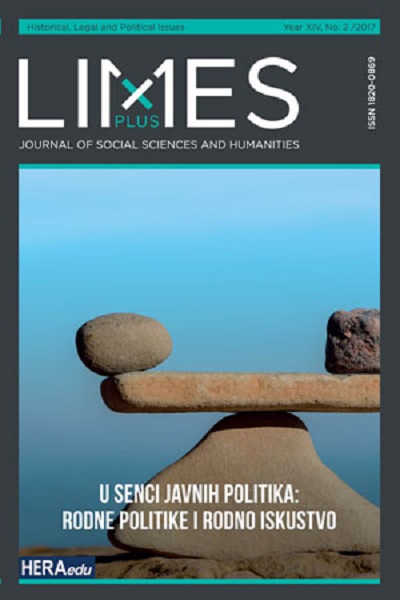Od partnerstva ka roditeljstvu: od uzajamnosti do odvojenosti
From Partnership to Parenthood: from Mutuality to Divisions
Author(s): Mirjana V. BobićSubject(s): Gender Studies, Family and social welfare
Published by: HESPERIAedu
Keywords: partnership; childbearing; gender equality; retraditionalization; Serbia
Summary/Abstract: The paper deals with relations in between partnership and parenthood in the context of family planning and its creation (through everyday practice after baby is born) including also perceptions of satisfaction. All of these aspects have been researched from the viewpoint of women/mothers in Serbia. The theoretical underpinnings stem from contemporary population literature which highlights marital happiness linked to gender equality as a precondition for stability of unions and (further) childbearing, especially when it comes to the second and higher order births (Bobic, 2013). Therefore we were specifically interested in females’ understanding of private sphere (partnership related to parenting) in Serbia today. Results of empirical research shed light on couples’ apparent relying on each other while making decision on birth, planning and preparations for delivery, i.e. transformation from partnership into parenthood. However this initial mutuality is been withdrawn from once baby arrives home and thus gender inequality comes into fore with salient burden placed on women/mothers (’females’ sacrificing model’), (Blagojevic, 1997, 2012) under the conditions of strong public patriarchy and ongoing process of retraditionalization. We consider these findings to be solid basis for family friendly measures targeted at lowering psychological costs of parenthood. The leading idea is that parenthood should have been tailored as gender symmetrical and flexible arrangement based on sharing responsibilities of both partners but also supported by wider society (in terms of law, services for child care, work family balance, material support to wider range of receivers, more active fathering, etc.). Major precondition for any such social intervention must be enhancement of quality of life of population of Serbia, especially youth, men and women, current and future generations of parents and their children.
Journal: LIMESplus
- Issue Year: 2017
- Issue No: 2
- Page Range: 107-133
- Page Count: 27
- Language: Serbian

